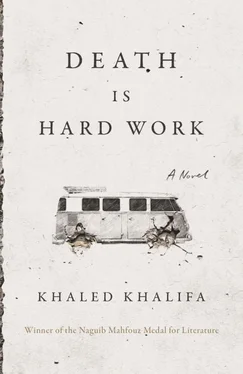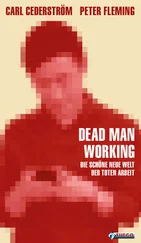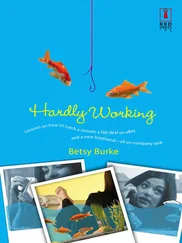But nothing changed after Layla’s suicide. Girls were still made to abandon their education after primary school, their families decided whom they would marry, and any girl who left the herd was slaughtered—but Bolbol’s grandfather was no longer the same man. He shut himself away and died ten years later, full of regret that he hadn’t taken her threats seriously. He had loved Layla and thought of her as the true heir of his own mother, who used to recite poetry to her husband. Many people still quoted her poetry and sang those sweet songs of hers. As well as composing love songs, she’d sung about many local events, recording them for posterity: the anonymous Storyteller of Anabiya. But no one had corrected the official history, in which her poetry and songs were usually attributed to Bolbol’s great-uncle. There was nothing in the history of the region about how that skinny little woman had passed all her anxiety on to her granddaughter decades later, and as for Layla herself, no one said anything about her, save that she had set herself on fire to hide her disgrace.
Now almost everyone was dead. Only a single uncle and a few cousins were left; most had fled for the camps in Turkey or were in prison or had joined the Free Army and its battalions, fighting one another as well as the regime. No one was waiting for the three siblings in Anabiya except for a few men who were already exhausted from burying so many dead over the last four years. But those few men would be enough to witness the accomplishment of Abdel Latif’s last request, although they had forgotten him long ago. His occasional family visits to Anabiya hadn’t been enough to reestablish the connections he’d broken after Layla’s death.
On those visits, Abdel Latif would exaggeratedly praise his new town and its inhabitants, trying to sound as though he’d found a new place to belong. He took no pleasure in fighting, in angry shouting matches. In reality, of course, Damascus did nothing to help him find a new identity for himself, and he ended up living in a small town on its margins, afraid of everything, like everyone who’d fled the countryside. Whenever he ran up against any bureaucracy, he would be asked about his relationship to the traitor Lieutenant Colonel Jamil; he would be struck dumb and reflect how, like him, they must be rather afraid if after all these years they still hadn’t forgotten Jamil. In this country, people like to say “The page doesn’t turn after death”; the dead pass on their actions and attributes to their children and through them to their grandchildren. Everything you do is closely observed, and your official records may as well be locked behind an iron wall: impossible for any civilian to read or alter.
And in one of the calmer moments of that stormy night in the minibus, it occurred to Bolbol that, as for all citizens, his father’s full record would still be in the hands of the Mukhabarat. Bolbol was assailed by a peculiar curiosity. He wished he could obtain those pages and read over them: what they said about Abdel Latif, how it had been more than forty years since he first arrived in S, that small town near Damascus, and then what they had written on the final pages. Thinking about these things distracted him from telling his brother and sister about Nevine, which he’d been meaning to do. It also prevented him from replying to Hussein, who had again worked himself into a rage over their stupidity for not getting rid of the body long before now.
Fatima spoke up to inform her brothers that the corpse was splitting apart. Bolbol immediately tried to change the subject, as if what she had said was of no concern. He wasn’t in the least bit interested in dwelling on the state of the body. He’d always known that keeping it intact and in the same state as when they left the hospital two days earlier was simply impossible. And when Fatima took it upon herself—out of her sense of duty, Bolbol supposed—to lift the blanket off of the corpse and reveal the nightmare underneath, which the brothers could only have guessed at, Bolbol wished she would just drop dead as well. The dead turn to shit. And even if Abdel Latif’s corpse had literally turned to shit, they still wouldn’t be able to just wipe him away. Their memories were like acid inside them, boring eternally down into their depths and covering their hearts with pockmarks—just as the sight of Layla burning like a corncob ate at Abdel Latif’s heart until the day he died.
Fatima wouldn’t leave well enough alone. She kept drawing her brothers’ attention to the ragged body, from which a string of pus had started to trickle from a tear. Hussein stopped the minibus, turned to Fatima, and shouted angrily, “Let it! Let it turn to shit!” He cursed his father and his family and glared furiously at Bolbol, who wouldn’t meet his eye. Bolbol was afraid he wouldn’t be able to bear what Hussein would say next. For some time now, he’d been glowering at Bolbol in the rearview mirror; they hadn’t expected to pass another night on the move. Silent tears were, as usual, dripping down Fatima’s cheeks, and a peculiar compulsion made Bolbol now decide that he wouldn’t go on allowing Hussein to behave however he liked toward them. Bolbol would carry out his father’s wish even if he had to carry him to Anabiya himself. He felt greatly comforted by this decision, but he kept silent and wouldn’t respond to Hussein’s provocation.
Images of their childhood had besieged them ever since leaving Damascus, of course, but now they were positively suffocating Bolbol. They weren’t all bad, but with the passage of time, those innocent moments had been made strange. Neither he nor Hussein could save the other; they were two sides of the same coin: Hussein was the face of bravery and buffoonery, and Bolbol of cowardice and capitulation. Both had lost the battle with life. Now all three siblings were like strangers to this corpse that, however much it had lost, still retained the advantage of being able to lie there without caring.
The drumming of the pouring rain was hammering their nerves. Twenty kilometers later the optimism they had felt at leaving the previous checkpoint finally ran out. They were back in the unknown. A group of cars overtook them, speeding erratically along the road. The armed men within had harsh faces and long beards. Their dark complexions made them look like foreigners; only one was fair, with braided hair and a half-witted expression. The siblings slowed down as they neared the cars, looked at the men curiously, and then went on their way. Hussein didn’t bother to hide the fact that they were utterly lost. A few lights appeared in the distance, and Hussein said they needed to stop and spend the night in the nearest village. Their nerves couldn’t take any more.
They approached a weak light. A man similar to the men they had seen in the cars waved his flashlight at them to stop, and Hussein rolled down his window. The armed man beckoned at him to slowly approach what appeared to be yet another checkpoint. His accent was peculiar, certainly not Syrian. Hussein told his siblings that the man must be Chechen and added that he knew the type from having escorted so many Russian dancers. They reached the checkpoint and waited. Their hearts were thudding almost out of their chests, and Bolbol felt he could almost hear them. A sniper could easily pick them off here. The wait was enough to liquefy anyone’s backbone. Who knew what they’d landed themselves in this time. After more than half an hour another vehicle straying through the night stopped behind them. They felt safer when they saw that the three young men inside were civilians like themselves. Hussein wanted to ask them where they were going; talking to strangers would be a good way to make them all feel calmer. Hussein lit his third cigarette and opened the door of the minibus and immediately a disembodied voice ordered him to get back in the vehicle. A few minutes later they were approached by a man wearing black clothes and a mask. He asked for their identity cards in faltering Arabic and caught sight of the body before they’d managed to describe the purpose of their journey. Hussein launched into a lengthy explanation at once. The man spoke into his handheld radio, then pulled the blanket off the corpse. The body had changed again, was covered with lacerations and was oozing pus all over. Its stench billowed out and clogged every nose. Three armed men headed over, got in, and ordered Hussein to drive to the prince’s villa at the edge of a nearby village, in the middle of a field, heavily guarded by more masked men. There, they all disembarked and went into the building.
Читать дальше












